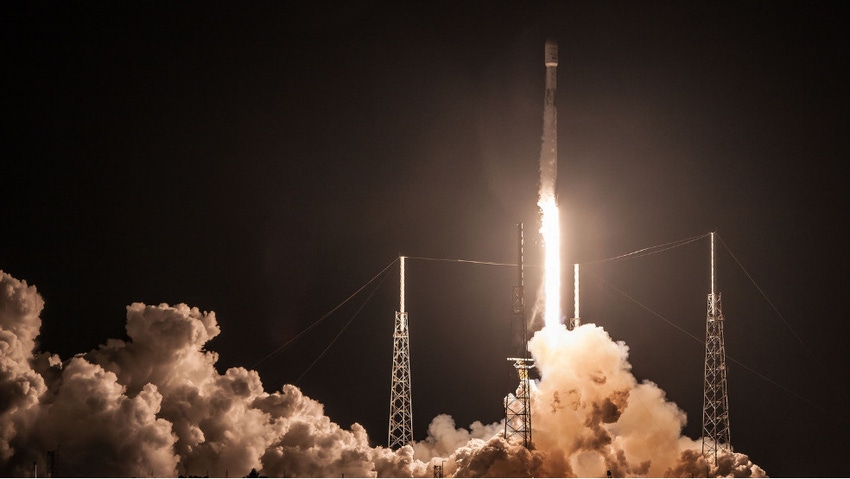Amazon swallows pride, does SpaceX deal
If it wasn't already obvious who currently leads the US billionaire space-race, one of them just asked the other for a piggyback on his rockets.
December 4, 2023

Amazon's low Earth orbit (LEO) satellite broadband division, Project Kuiper, has agreed a launch partnership with Elon Musk's SpaceX, operator of rival LEO service Starlink.
The contract covers three launches aboard SpaceX's Falcon 9 rockets. The missions are slated for lift-off in mid-2025.
"SpaceX's Falcon 9 is a reusable, two-stage launch vehicle designed for the reliable and safe transport of people and payloads into Earth orbit and beyond, and it has completed more than 270 successful launches to date," reads Amazon's press release.
Writing that must have stung a bit, given that Amazon founder Jeff Bezos also founded a reusable rocket company, Blue Origin.
Amazon's preferred take-home message from this announcement is that its drive to get Project Kuiper up and running and into service supersedes any rivalry – be it commercial or personal – between the two companies.
For added merit to this idea, Amazon cites its earlier procurement of launches from other rocket companies. It has scheduled 38 launches on United Launch Alliance (ULA)'s Vulcan Centaur rocket, and 18 launches on Arianespace's Ariane 6. It's also using Blue Origin, which will carry out 12 launches for Project Kuiper using its New Glenn rocket, with the option of a further 15 later on.
"Project Kuiper satellites were designed from the start to accommodate multiple launch providers and vehicles, allowing us to reduce schedule risk and move faster in our mission to connect unserved and underserved communities around the world," said Amazon.
The question is, will there be any un/underserved communities left by the time Project Kuiper launches.
It's first two prototype satellites blasted off in October, marking the start of an intense period of testing.
Amazon subsequently provided regular progress reports, issuing updates when it had established comms between the satellites – KuiperSats 1 and 2 – and its operations centre, and once it had tested their proprietary propulsion systems.
A little over a month after launch, Amazon reported that its 'Protoflight' mission had been 100 percent successful.
"Every major system and subsystem on board our two prototypes demonstrated nominal or better performance following launch," Amazon said. "The tests we ran allowed the team to fully validate the architecture and design of our satellite constellation and to conduct demonstrations of 4K video streaming and two-way video calls over the network."
On the commercial front, Amazon recently struck a deal with NTT and SKY Perfect JSAT to offer satellite connectivity to enterprises and government agencies in Japan.
Steady progress – which is commendable – but in the meantime its rivals have carried on pursuing commercial opportunities and expanding into new markets.
Recent highlights come courtesy of Eutelsat's OneWeb arm, which is closing in on India, having recently been granted permission to operate by the country's space agency.
Meanwhile according in the last month alone, SpaceX has carried out seven further successful missions, launching another 160 Starlink satellites.
When Project Kuiper finally enters commercial service, it will have to offer up something special – in terms of either performance, or price – if it is going to stand any chance of competing.
About the Author(s)
You May Also Like








.png?width=300&auto=webp&quality=80&disable=upscale)


_1.jpg?width=300&auto=webp&quality=80&disable=upscale)


.png?width=800&auto=webp&quality=80&disable=upscale)